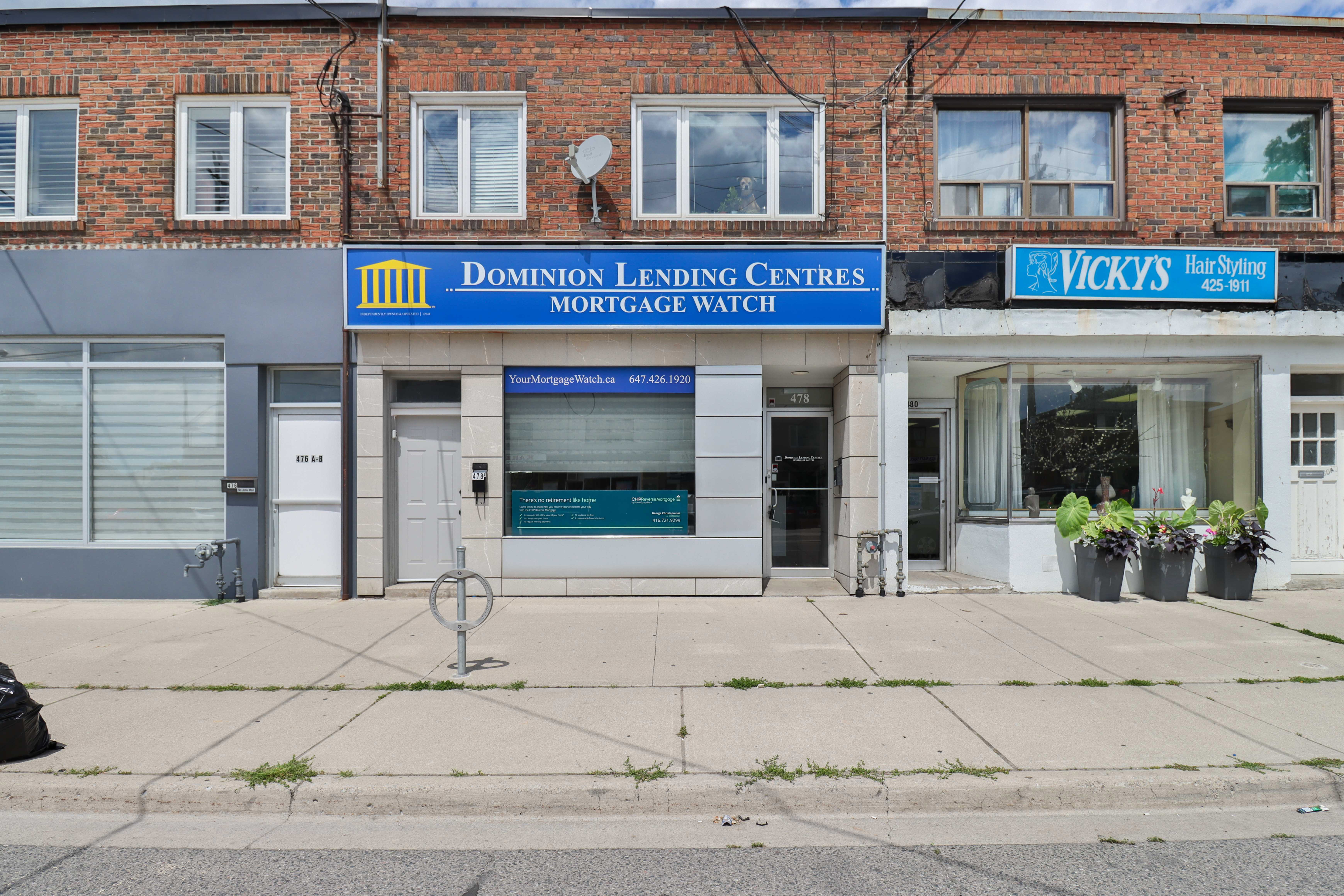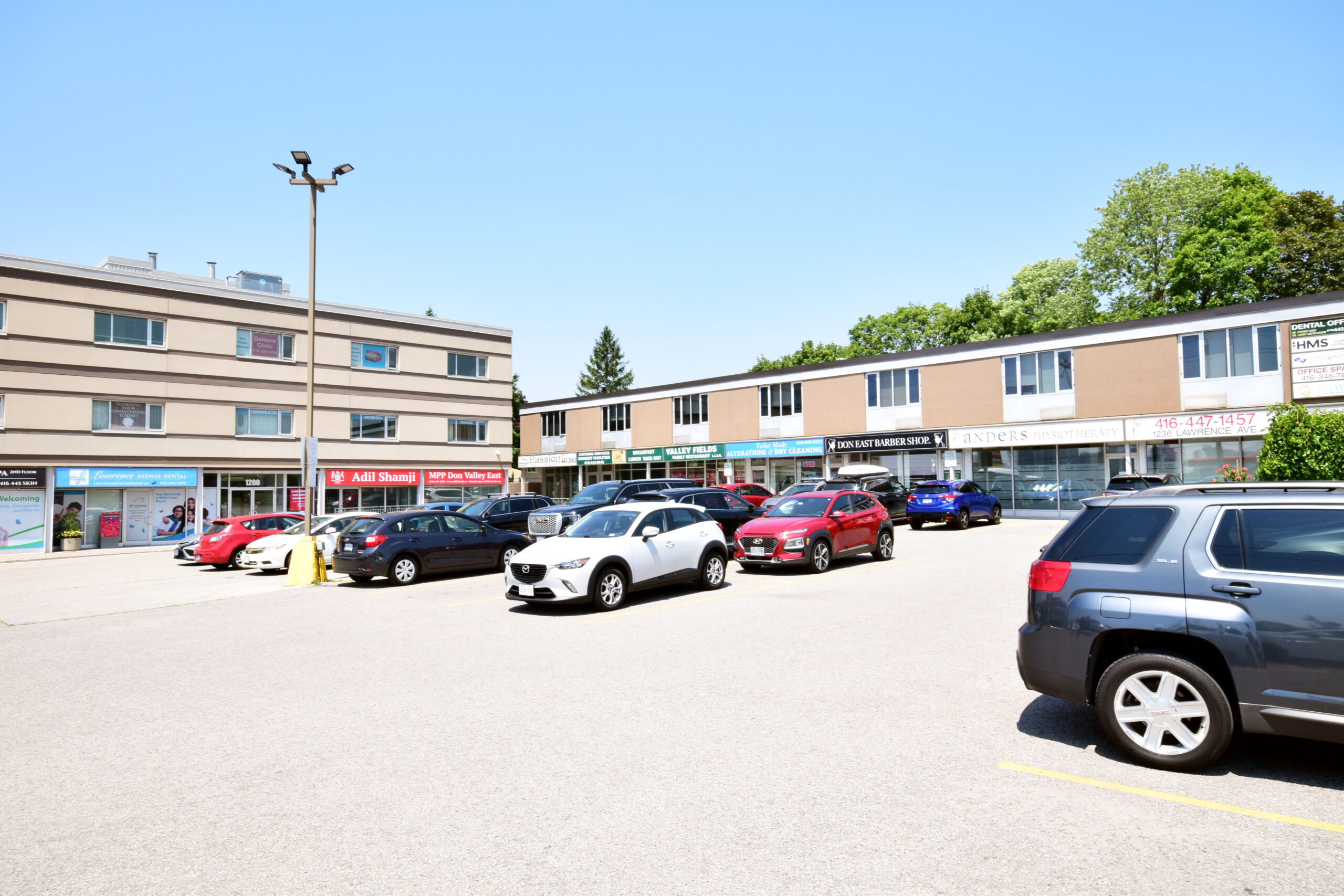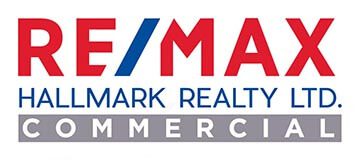Author The Lilly Commercial Team
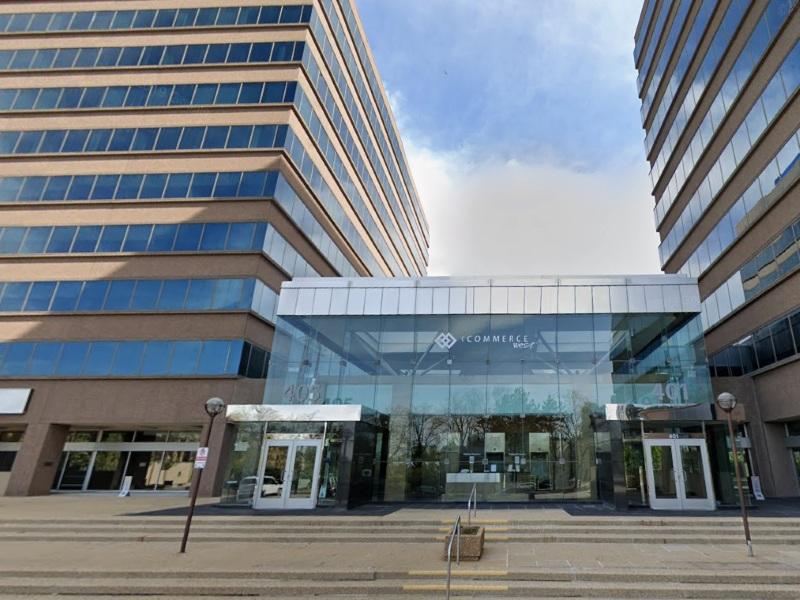
Ravelin Buys 100% Interest In 2 GTA Office Buildings; Updates Chicago Loan
Ravelin Properties REIT (RPR-UN-T) has acquired the remaining 25 per cent interest in two Greater Toronto Area office properties, and has agreed to a forbearance period connected to a CIBC loan for an office property in Chicago.
The two Toronto-area office assets are the Commerce West centre in Etobicoke and the Gateway Centre in Mississauga. The properties have 659,713 square feet of gross leasable area, the Toronto-based company said in a Monday night announcement.
Ravelin, formerly known as Slate Office REIT, now owns the full 100 per cent interest in its Greater Toronto Area (GTA) portfolio, consisting of six properties totalling 1,636,265 square feet.
The transaction “enables us to fully control the decision making, budgeting, leasing, and capital investment plans for these properties,” Shant Poladian, CEO of Ravelin, said in the announcement.
Financial details were not provided.
As leasing activity builds up momentum in the GTA, the timing is “favourable” for Ravelin, he continued.
In 2019, Slate had sold a 25 per cent interest in six GTA office buildings, including Commerce West and Gateway Centre, to entities controlled New-York based Wafra Inc. for $131.8 million.
Negotiating US$84M loan with CIBC
Alongside its announcement of the transaction, Ravelin said it is working to resolve a default on a CIBC loan for 120 South LaSalle, a 23-storey, 658,784-square-foot building in downtown Chicago. Ravelin purchased the asset in 2019 for US$155.5 million from a joint venture between Lincoln Property Co. and the Illinois Teachers’ Retirement System.
The total principal debt amount currently outstanding under the loan is US$84 million and matured on Aug. 31. Ravelin previously reported the loan was in default because of covenant breaches in its financial statements since Q1 2024.
The REIT said it is in “active discussions” to resolve the loan default and “achieve a mutually acceptable loan restructuring.”
CIBC is said to have issued a notice of default and a reservation of rights, and agreed to the forbearance agreement which will expire on Sept. 30. The agreement aligns with the current forbearance period that Ravelin has in place with one of its major investors, G2S2 Capital Inc.
Ravelin faced troubling debts, internal dispute
Earlier this year, G2S2 Capital acquired almost $600 million of Ravelin’s debt, which totalled over $1 billion. Ravelin received a six-month forbearance from G2S2 in late March so the REIT could have time to negotiate the terms of a recapitalization plan.
G2S2, a Halifax-based investor, made the move to restructure Ravelin’s secured debt to stabilize the assets, George Armoyan, executive chairman of G2S2 and a member of Ravelin’s board, said.
Ravelin and its precursor Slate have struggled with heavy debt, higher interest rates and a slowdown in the office sector since 2023.
Slate embarked on a Portfolio Alignment Plan to reduce its debt, which entailed the sale of assets representing approximately 40 per cent of its gross leasable area and amending its declaration of trust to raise the ceiling on its allowable debt.
Compounding its financial troubles, the company was caught in a dispute between founders Blair and Brady Welch and Armoyan. The Welches resigned from Slate’s board in October 2024 due to the friction over the management of Slate.
As of June 30, Ravelin reported an office portfolio of approximately 6.3 million square feet and a non-office portfolio measuring 191,401 square feet. Its properties are located in Canada, the U.S. and Ireland.
Source Renx.ca. Click here for the full story.

Mehan Group Continues Advancing Major Scarborough Development Plan
Mehan Group Ltd. and its affiliated companies have assembled a portfolio of properties valued at more than $200 million across Ontario, and it’s preparing to launch its biggest development at 2655 Lawrence Ave. E. in the Toronto suburb of Scarborough.
President Sunil Mehan was born in India in 1963, moved to the United Kingdom in 1985, and started a real estate business there in 1998 that involved building houses and buying and renovating pubs.
His Canadian real estate activity began in 2005. At the time he was still based in the U.K. and started buying and selling Canadian properties — without first seeing them in person.
“If something is of interest to me, I’ll buy it,” Mehan told RENX. “I’m still looking for opportunities.”
That included the 2.88-acre 2655 Lawrence Ave. E. site east of Midland Avenue that was acquired for $3.15 million in 2007. It’s the site of a 28,000-square-foot building that’s currently occupied by a commercial strip plaza with close to 60 tenants, including restaurants, a used car dealership, automotive repair shops, offices and a grocery store.
Plans for 2655 Lawrence Ave. E.
An application to the City of Toronto to replace the Lawrence Avenue plaza with a mixed-use development with 425 residential units and approximately 21,800 square feet of commercial space was originally submitted in 2008.
More applications have since followed and rezoning approval for the site was recently granted to accommodate:
a 32-storey purpose-built rental apartment with 356 units;
a 20-storey building with 230 residential units and 11,480 square feet of commercial space;
a combined 514 vehicle and 643 bicycle parking spaces; and
12,637 square feet of indoor amenity space, plus 12,615 square feet of outdoor amenity space.
Mehan Group’s previous studies must be updated and site-plan approval is still needed.
The 32-storey apartment is to be constructed first and Mehan said the market will dictate whether the second building will be rental or a condominium. He’s aiming to have the first building completed within five years.
While Mehan Group utilizes bank financing, it doesn’t have any outside investors.
“I really don’t like to borrow too much,” Mehan said. “I have good equity and good cash flow.”
Other Mehan Group properties
Mehan Group owns other Ontario properties in the Greater Toronto Area as well as in Welland, St. Catharines, Kincardine, London, Sault Ste. Marie and Prince Edward County. Among them are:
the recently opened 58,000-square-foot K1 Speed indoor go-kart facility at an 11-acre plaza it owns at 333 Ontario St. in St. Catharines, with other tenants including Tim Hortons, Boston Pizza, AeroSports St. Catharines, Gymnastics Energy and Booster Juice;
a 4.79-acre site at 792 Broadway St. in Kincardine occupied by McDonald’s, Kelly Jennings and a Canadian Tire gas station;
a 10-acre site with a 100,000-square-foot, 11-unit commercial building at 784-820 Wharncliffe Rd. in London where tenants include Canadian Blood Services, Herm’s Sports Exchange, Mission Thrift Store and AeroSports;
a GoodLife Fitness centre in a 28,500-square-foot building on a 3.85-acre lot at 589 Second Line E. in Sault Ste. Marie;
and Isaiah Tubbs Resort and Conference Centre, a 22-acre property with 2,000 feet fronting West Lake near Sandbanks Provincial Park in Prince Edward County.
Mehan Group purchased Isaiah Tubbs in 2022. Thirty guest rooms are being renovated, the reception area is being moved from one building to another, more guest rooms will be added, and a new structure with an indoor pool and small water park will be built to make it more of a year-round resort than a seasonal one.
A new lending subsidiary, Mehan Capital Inc., has also been created to finance new deals.
“I like to be busy,” Mehan said. “If there’s nothing much to do, I get bored.”
Source Renx.ca. Click here for the full story.

For Foreign Investors, Canada’s Fundamentals Remain Solid
Investment conditions for Canadian commercial real estate are looking more favourable compared to those in the United States, according to the Colliers Canada report Why Invest in Canada 2025.
Colliers Canada head of research Adam Jacobs told RENX past perceptions Canada has made it more difficult or expensive for foreign investors may largely be out of date, based on today’s realities.
“Generally, when the world is chaotic and scary, people run to the U.S. and buy U.S. dollars, U.S. bonds and U.S. stocks, but we’re in an unusual situation where the U.S. is the cause of the chaos,” Jacobs said.
This makes Canada look like a more stable and safe place to large global investors looking to diversify in North America.
Canada also has good demographic fundamentals. Its population growth rate was double that of the U.S. in 2022 and close to triple it in 2023 and 2024.
While Canada is experiencing a correction with sharply lower immigration in 2025, this is likely a temporary scenario over the next 12 to 18 months. It’s expected that Canada will regain the demographics advantage by 2027 and continue from there.
Canada has lower interest rates
While the U.S. has a lower unemployment rate and higher growth, much of this comes from a large amount of federal deficit spending. Canada’s debt-to-gross domestic product levels at the federal level remain significantly lower than those of the U.S. and are forecasted to remain that way for the next three years, according to Oxford Economics
.
Interest rate hikes around the world, designed to control inflation, have severely impacted the commercial real estate development and lending markets.
However, the cost of debt is significantly lower in Canada, with 10-year bond yields below 3.5 per cent. The U.S. has been slow to cut rates, with target rates well above those in Canada and other developed countries around the world.
The gap between U.S. and Canadian borrowing costs is currently much larger than normal at more than a full percentage point.
“When everyone’s working with a lot of leverage, a one per cent difference in borrowing costs is pretty significant,” Jacobs observed.
Canadian central bank target rates are also forecasted to remain below U.S. levels for the next several years.
The combination of rising interest rates and increased volatility has negatively affected returns in the U.S., with the MSCI Commercial Property Price Index (CPPI) showing persistent declines since mid-2022. Canada posted mostly positive figures despite rate hikes and inflation.
Canada remains one of the top-performing global markets in the CPPI, with five-year returns surpassing all G7 nations as well as Singapore, Hong Kong and Nordic countries.
Office is attracting more interest
“Industrial has carried a huge amount of weight in the last couple of years and industrial is a bigger part of the investment market here,” Jacobs said when asked what asset classes have been driving investment in Canada. “But now we’re seeing more interest in retail and even office, which were the less favoured assets for the last four or five years.”
The combination of no new major office developments coming online and a push by companies to have employees in the office more often are giving the asset class a bump. While office vacancies remain high in Canada’s three largest cities after a development boom in the early 2020s that added tens of millions of office square footage, they’re still in better shape than many of their American peers.
Vancouver, Toronto and Montreal have lower vacancy rates than Chicago, Los Angeles, Dallas, Atlanta, Washington, D.C., Houston and San Francisco.
“We still have pretty vibrant downtowns where people want to be, whether it’s for tourism, sports, entertainment, employment, parks or cruise ships,” said Jacobs. “I think some cities in the U.S. have reached a point where people go to work and want to leave the city five minutes after work is over.”
Jacobs expects Canadian office vacancy rates, especially downtown, to be lower in a year. Suburban office space didn’t take as big a hit in this most recent downturn, and Jacobs doesn’t see it dropping in performance.
U.S. is overbuilt in office and retail
Canada has 12.6 square feet of office space per capita compared to 16.5 in the U.S. and has 16.8 square feet of retail per capita compared to 23.5 south of the border.
Jacobs said it’s easier to develop in the U.S., which he believes works in Canada’s favour.
“If you’re looking at a long-term investment, it’s attractive in Canada because less development means less competition,” Jacobs explained. “There’s less risk of buying an asset and then a new one is built a kilometre away that’s better in every way and takes all of your tenants away.”
Foreign investment in Canada is down
Despite these favourable conditions, the foreign buyer share of Canadian commercial real estate assets is just three per cent this year, according to Real Capital Analytics. That’s down from 11 per cent last year and a 10-year high of 37 per cent in 2023. The 10-year average coming into 2025 was close to 15 per cent.
“I think 2025 is a difficult year to assess because the fear over tariffs and the impact of tariffs was profound,” Jacobs said, “but I think we’re going to see that come back to life.”
Jacobs cited the May announcement of the $4-billion acquisition of InterRent REIT by Ottawa-based CLV Group and Singapore-based sovereign wealth fund GIC as an example of a foreign investor expanding in Canada.
“There could be a few more deals like that where somebody who has a lot of access to capital is looking at some company or landlord in Canada that has a good portfolio but maybe is in a bit of a pickle in terms of debt or refinancing,” Jacobs said.
Source Renx.ca. Click here for the full story.
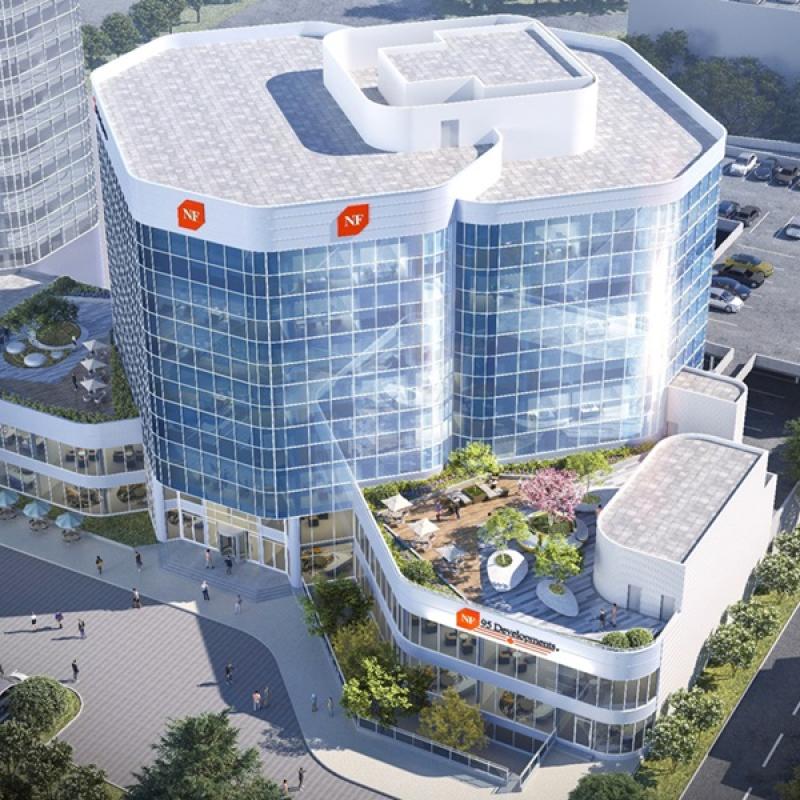
95 Developments Near Sellout At Toronto Office Strata Project
Toronto’s 95 Developments has a project pipeline comprising 7,500 housing units, but one of its most innovative ventures is in the office sector where the company has almost sold out a strata conversion at its 95 Corporate Centre.
Just seven unsold units remain at the office condo at 105 Gordon Baker Rd., in the city’s North York neighbourhood.
“The smallest unsold unit is 90 square feet while the biggest one I have is 700 square feet,” manager of sales Simon Wang told RENX.
The development company is a subsidiary of Woodside Square Investment Trust, which has a property management arm and owns and operates Woodside Square mall in Scarborough, plus about a million square feet of commercial space on Finch Avenue on the northern edge of the city.
The 171,000-square-foot 95 Corporate Centre building was owned and operated by the company for several years but, once the COVID-19 pandemic-related workplace shutdowns happened and the office market seriously slumped, its occupancy rate dropped to around 25 per cent.
Something had to be done, so 95 Developments started researching and then educating real estate brokerages — many of whom had also seen their business decline due to the drop in residential condo sales — about office condos. Several agents came on board and have been responsible for a large chunk of the building’s unit sales.
Building conversion and purchase incentives
The company has its own in-house architect, engineers and construction team and the year-long building conversion was completed in September 2024. While there were previously about 40 leased spaces, there are now 168 private ownership spaces.
“We implemented a market-smart strategy to help buyers overcome financial hurdles, including vendor take-back financing and lease-back options,” Wang explained. “This innovative approach not only eased the purchasing process but also allowed business owners to lease back their units, creating a win-win scenario for both investors and occupants.”
A 30 per cent deposit was requested up front and about 70 per cent of the purchases utilized the vendor take-back financing with five-year terms and interest-only payments. The interest rates are zero per cent for the first two years, one per cent in year three, two per cent in year four and three per cent in year five.
The lease-back option was aimed at investors that wouldn’t be immediately occupying the units and provides a guaranteed annual return of 18 per cent.
“The investor might still be on a lease somewhere for a couple of more years, and it’s a transition stage that we help with,” Wang said.
Unit sizes and purchasers
Space sizes purchased range from 90 to more than 10,000 square feet, with an average size of 700 square feet and a price of about $600 per square foot.
About 60 per cent of purchasers have been investors while the rest have been occupiers. Spaces have been acquired by medical, professional office, non-profit and e-commerce users, among others.
In addition to local purchasers, units have been acquired by people from across Canada as well as Asia and the Middle East.
“We’ve got a lot more variety than we had before,” Wang said of the occupier mix. “We’ve seen a lot of overseas companies that left the market a couple of years ago beginning to come back and they’re looking for these spaces.”
95+ Coworking
One investor purchased 10,000 square feet with the lease-back option and rental guarantee and, for the next five years, that space will be used for 95+ Coworking. It will have its grand opening on Sept. 5.
The location will provide meeting facilities and an event space for users with small units that can’t accommodate many people. It will also offer facilities for online streaming and places for owners to relax or play video games.
“We’re providing it as an amenity,” Wang said. “Our goal is to build up the brand and an identity.”
Renovations and upgrades have also been done in many common areas of 95 Corporate Centre.
Three upcoming developments

On the multiresidential front, excavation began last year for a 15-storey, 158-unit building at 2992 Sheppard Ave. E., at the intersection with Pharmacy Avenue, in Scarborough. It’s slated to be a condo at this point and is scheduled for completion in 2027.
The flagship project for 95 Developments will be the multi-phased intensification of Woodside Square at 1571 Sandhurst Circle in Toronto. While the shopping centre will remain in place and be enhanced, the company plans to develop seven multiresidential buildings with approximately 2,700 units around it.
Wang said a multi-phased, master-planned community called The Rose Hills at 282 Monarch Ave. in Ajax, just east of the city, will eventually have approximately 3,700 residential units. Demolition of the existing commercial plaza is underway and Wang is looking to start marketing the project next year.
“Both projects have approvals in place and the municipalities have been pushing us to get shovels in the ground,” Wang said.
Proposed developments and acquisitions
There are other development properties at earlier stages of progression in 95 Developments’ portfolio, including:
- the proposed 28-storey, 748-unit The Garden Series on Finch at 2930 Finch Ave. E.;
- and the proposed 14-storey, 346-unit The Bridleton at 3268 Finch Ave. E.
Funding for 95 Developments projects comes from investors in Woodside Square Investment Trust, while it also receives financing from lenders.
Wang said the company is in the process of acquiring another Toronto property for a low-rise development.
“We’re still actively acquiring different projects and we believe right now is a very good time to acquire these projects,” he explained. “We’re more than just a builder in terms of asset management, residential development and property management, we’re also a community builder.”
Source Renx.ca. Click here for the full story.

BGO Has Acquired The 300,000-plus-square-foot Rockwood Plaza At 4141 Dixie Rd. In Mississauga, Ont. From The Sitzer Group
“It had been held by that private owner for a number of decades and, as sometimes happens with private owners, there are a lot of considerations that go into a sale decision,” BGO Canada managing partner and chief investment officer Simon Holmes told RENX.
“It sounds like, from what I’ve picked up, that there was a consensus that it was the right time to seek some liquidity by the seller.”
The Sitzer Group was founded in 1957 and is a privately owned property developer and manager specializing in shopping centres anchored by grocery stores, drug stores and banks in and around the Greater Toronto Area (GTA). The Ontario-based company owns 17 retail plazas.
Holmes declined to divulge the purchase price, but Green Street News reported it as $90 million.
Significant investor interest in Rockwood Plaza
Rockwood Plaza was marketed by Institutional Property Advisors and Holmes said there was “significant interest” in the property, as necessity-based retail is on the radar for a number of institutional investors these days.
The bid date occurred the same week as United States president Donald Trump announced a broad package of import duties on countries around the world.
“I think that provided or introduced a little bit of market uncertainty to some investors,” Holmes said, “and I think the fact that we’ve got a very long-term strategy where we’re thinking through the news cycle probably gave us competitive positioning to be able to bid with confidence and ultimately be the winning bidder.”
Rockwood Plaza is anchored by a longstanding Food Basics and supported by other national retailers, including Winners, HomeSense, Shoppers Drug Mart, Dollarama and three major banks. It has a strong track record of tenant tenure, with many relationships extending more than two decades.
The plaza is 95 per cent leased and tenants have a weighted average lease term of just under four years. Rents are at or near market levels and have “a little bit of upside,” according to Holmes.
“There are long-term tenancies with some tenants, with some long-term renewal options, which provides some great stability,” Holmes noted. “But that’s combined with a little bit of flexibility in certain parts of the mall as well.”
The majority of the key tenants have exterior entrances while most of the vacant space is in the mall’s small enclosed area.
Rockwood Plaza occupies a 23.7-acre site at Burnhamthorpe and Dixie roads. It offers easy connectivity to major transportation routes — including highways 401, 403, 427 and the Queen Elizabeth Way — and is near both the Dixie GO Transit station and Mississauga Transitway.
“It’s great to be able to source one of these properties in a very central location within the GTA,” said Holmes. “These properties don’t typically come up for sale very often.”
Short- and long-term plans
BGO Properties — the in-house property management, operations and leasing team — will seek to enhance Rockwood Plaza’s performance and make it more attractive to tenants and consumers through capital improvements, tenant engagement and strategic leasing.
“There’s a lot that works very, very well and there’s a great established tenant base, and we want to continue to nurture relationships with those tenants,” said Holmes. “But there are also some opportunities to reposition and add some new tenancies in certain parts of the centre.”
Occupying almost 24 acres of land with favourable zoning in the centre of Mississauga also puts the site in consideration for long-term redevelopment, though Holmes doesn’t envision that happening for at least 10 years.
BGO’s Prime Canadian Property Strategy
BGO acquired Rockwood Plaza on behalf of its Prime Canadian Property Strategy, a core, open-ended fund with a 40-plus-year track record of delivering low-risk types of returns to its institutional investor base.
“We’re looking for opportunities across all property types and we’re in a bit of a unique position,” Holmes said. “We’ve seen a healthy amount of new investor commitment and capital inflows into the fund, which means we can be actively deploying at a point in time in the real estate cycle when some other institutional investors are on the sidelines.
“We’re looking at opportunities such as this one: well-located, high-quality properties that are accretive from a yield perspective. Thinking about that income yield is paramount to a lot of what we do within the fund.”
The diversified fund owns properties in the four major asset classes. Its most recent activity has been focused on grocery and necessity-based retail as well as multifamily.
Holmes said BGO has a “robust pipeline” of acquisition opportunities across different asset classes.
“I think 2025 will prove to be a very compelling vintage for groups that have capital to deploy. These windows in the market, where some capital is on the sidelines, rarely last long in Canada.
“So we’re aiming to be as active as possible to acquire high-quality properties with compelling going-in yields and below replacement costs.”
About BGO
BGO is part of SLC Management, the institutional alternatives and traditional asset management business of Sun Life.
The real estate investment management advisor and services provider has offices in 25 cities across 12 countries. It’s involved in the asset management of office, industrial, multiresidential, retail and hospitality properties and serves over 750 institutional clients.
BGO had approximately U.S.$89 billion of assets under management globally on June 30.
The company had more than 940 employees in Canada managing more than 455 properties encompassing more than 70 million square feet on that same date.
Source Renx.ca. Click here for the full story.

Allied Properties Reit (AP-UN-T) Has Updated Its Leasing And Tenancies At Two Major Mixed-use Developments In Toronto And Vancouver, Unveiling Whole Foods Market As The Anchor Tenant At KING Toronto
With its partner Westbank Corp., Allied finalized a 20-year lease with Whole Foods at KING Toronto, a striking condo community that has grabbed attention for its architecture of stacked glass blocks placed in peaks and valleys designed to resemble a mountain range.
The grocery store is to be the main retail tenant for the project, which will enable Allied and Westbank to move forward on a leasing plan for remaining commercial component of KING Toronto, Allied said in the Monday morning announcement.
At M4, a nine-storey office building with 204,000 square feet of gross leasable area at the Main Alley Campus, Allied expects to finalize a lease expansion agreement by the end of Q3. That is also when Allied is to close its $89.7-million acquisition of the remaining 50 per cent portion of the project from Westbank, giving Allied 100 per cent ownership.
M4 to be 90 per cent leased
When the lease extension is finalized, M4 will have 90 per cent of its space leased, up from to 77 per cent currently.
Netflix is the principal tenant at M4, with 110,600 square feet being built-out for active occupancy. Rent from the building is scheduled to be generated in early 2026.
“Completing the large, multi-city development pipeline we initiated in 2012 has materially enhanced our ability to serve knowledge-based organizations,” Michael Emory, founder and executive chair of Toronto-based Allied, said in the release.
“We now have a much broader base of high-quality office and retail tenants, an expanded range of workspace options,” he said, “and greater concentration in stronger and larger mixed-use, amenity-rich urban neighbourhoods.”
Both projects are located in office nodes for “knowledge-based organizations” according to Allied — Mount Pleasant in Vancouver and the King West Village in Toronto. In an Allied document published in 2024 that outlines King West Village, the company cites data that found almost 80 per cent of the population in the neighbourhood has university education.
Allied’s KING Toronto, M4 developments
KING Toronto is planned to have 440 condo units, 80,000 square feet of office space on the second and third storeys, and 120,000 square feet of retail space at and below grade. Development is expected to be completed by the end of 2026.
Allied’s president and CEO Cecilia Williams said seven other retailers are in negotiations for the remaining commercial space at KING Toronto on a July 30 conference call for the company’s Q2 results.
Main Alley Campus is being developed by Westbank, and is designed to be made up of five buildings. The expectation is for Main Alley to have approximately 500,000 square feet of workspace and 60,000 square feet of industrial or retail space.
M4 will be neighbouring:
- M1, a two-storey office building owned by Westbank and a partner;
- M2, an eight-storey office building owned by San Francisco-based Spear Street;
- M3, a three-storey office building with potential for a data centre, owned by Westbank and a partner; and
- M5, a 25-storey mass timber rental tower, yet to be constructed, which would be on the surface parking lot of M1.
Westbank says M1 and M2 are fully leased, with M3 planned for future expansion, and M4 in pre-leasing.
Source Renx.ca. Click here for the full story.

Cameron Stephens Mortgage Capital Has Launched An Accelerated Lending Program To Provide An Under 15-day Commitment Process For Single Advance Inventory, Term, Bridge And Land Loans Of Up To $15 Million
The program “came out of the notion that things are taking forever and it’s difficult to get any certainty from many lenders right now,” says Steve Cameron, president and COO of Cameron Stephens. “We thought if we put this program together, hopefully it would provide a service that other lenders weren’t providing right now,” namely a path to a quick closing.
To provide the funds, 21-year-old Cameron Stephens is tapping into up to $500 million in discretionary capital from its mortgage funds, including the Cameron Stephens Mortgage Trust, Bay Street High Yield Fund, and Western Canada High Yield Fund.
Using its internal funds helps eliminate layers of approval and red tape and significantly reduces time to close, the company says.
“We thought that having a program that would allow us to deploy our private capital and give our borrowers that quick turnaround time was something that would be appreciated,” says Katie Bonar, senior vice-president, investment management at Cameron Stephens.
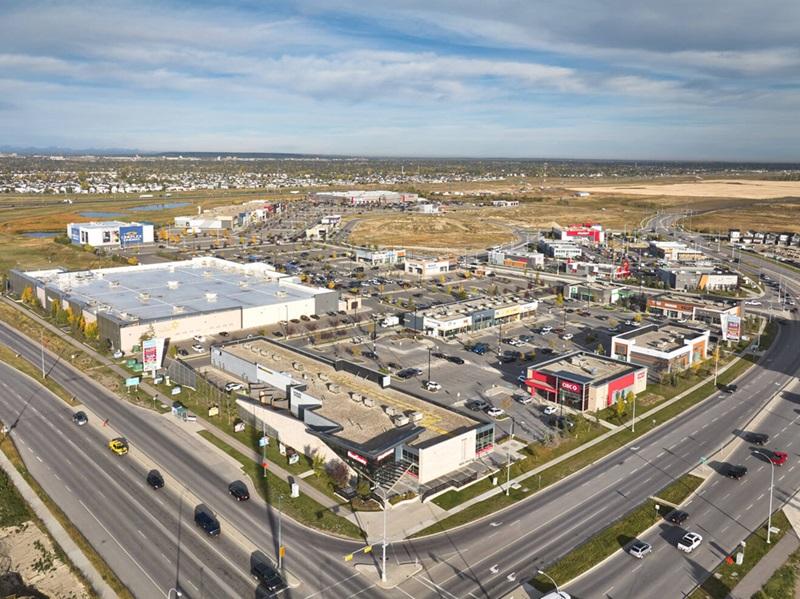
The Ongoing Saga Surrounding Hudson’s Bay Company (HBC) Stores In Receivership And The Sale Of Multiresidential Buildings May Be Big Headline Generators For Riocan REIT, But The Trust’s Attention Remains Focused On Its Retail Portfolio Operations
The REIT also revealed during its Q2 financial conference call on Friday it will exit from five properties it held financial interests in as a partner with HBC.
RioCan is no longer providing financial resources for a stand-alone HBC store in downtown Calgary, nor those in Scarborough Town Centre, Square One Shopping Centre, CF Carrefour Laval and CF Promenades St-Bruno.
“If there isn’t a return on the capital of re-tenanting these boxes, and to the extent there’s non-recourse debt on these properties, we’re going to take a step back and give them back to the financiers,” chief operating officer John Ballantyne told RENX in an interview following the call.
They are among 12 properties in which RioCan was a partner with HBC. RioCan had already taken a $209-million writedown on the venture in its Q1 2025 financials.
Ballantyne told RENX RioCan is now operating in a market favourable to property owners.
“The underlying business is as strong as it’s ever been in the 31 years I’ve been at this company, and we’re very much looking forward to the next few years,” said Ballantyne.
“The paradigm has very much shifted to a landlord-favoured market. What we’re seeing, particularly in the major markets where we operate, is the fundamentals are extremely strong.
“Between the immigration that has happened over the last 10 years in this country and the lack of new retail space that’s been constructed, it’s only served to benefit companies like RioCan that own retail and grocery-anchored sites in major markets.”
Occupancy and leasing remain strong
Toronto-headquartered RioCan owns, manages and develops necessity-based and mixed-use properties. It owned a portfolio of 178 properties with an aggregate net leasable area of approximately 32 million square feet as of June 30.
About 85 per cent of those properties have a grocery component and the retail portfolio has a committed occupancy rate of 98.2 per cent.
RioCan’s retention rate of 91.6 per cent reflects an effective balance between upgrading tenant quality and preserving existing strong tenancies.
RioCan recorded 1.3 million square feet of leasing in the three months ended June 30, including 1.2 million square feet of renewals. The trust achieved a blended leasing spread of 20.6 per cent, with a new leasing spread of 51.5 per cent and a renewal leasing spread of 17.4 per cent.
“Our centres really serve the everyday shopping needs of the Canadian consumer, between grocery, pharma, value and banking,” Ballantyne said.
“There’s still a strong demand from the three national grocers and what we’re seeing from the value side — from the TJX banners and Dollarama — is when we have boxes available, they’re typically first in line to take these spaces.”
Infill retail intensification
Due to this demand, a lack of new development for economic reasons, and retailer willingness to pay higher rents, RioCan is intensifying existing properties with the additions of:
37,000 square feet at the 880,000-square-foot East Hills Shopping Centre in Calgary, with new tenants including Value Village and a bank branch;
18,000 square feet at the 839,000-square-foot RioCan Windfields in Oshawa, Ont., mainly for food uses;
a combined Winners and HomeSense store that’s almost finished at the 213,077-square-foot Clarkson Crossing in Mississauga;
and a bank pad at the 384,000-square-foot Sage Hill Crossing in Calgary.
“We’re finding that these infill projects definitely pencil now and we’re getting the return on our capital to justify the development,” said Ballantyne. “We’re just going to continue to grow our sites.”
HBC stores
HBC continues to go through the receivership process, and RioCan had a relationship with 13 of its stores. The RioCan-HBC Limited Partnership was created in 2015 and represented 0.5 per cent of RioCan’s equity on June 30.
Progress is being made with the receiver for stores at Oakville Place, Georgian Mall, Tanger Outlets Ottawa (owned and managed by RioCan), as well as at Yorkdale Shopping Centre, Devonshire Mall and stand-alone downtown locations in Montreal, Vancouver and Ottawa.
Ballantyne anticipates the situations to be resolved by the end of the year.
“Particularly for the three boxes that we manage, given what’s going on in the retail market and the lack of available space, we’ve had retailers talking to us about those opportunities for the last number of years,” Ballantyne said.
Whether those three locations are leased to single operators or the spaces are divided for multiple tenants, Ballantyne said they’ll be improved and generate a “very satisfactory” return.
New land development remains on hold
While RioCan is involved with approximately 20.6 million square feet of land zoned for new development, and another three million square feet for which zoning applications have been submitted, it doesn’t plan to move on it over the next two years.
“We consider that all to be future value,” Ballantyne said. “And at this point in time, it’s not part of our strategy to start putting money into this program.”
Ballantyne acknowledged Canada’s housing shortage will continue and, while there’s not much new construction happening now, that’s expected to change in the coming years. At that point RioCan would either sell its land or take a minor ownership interest with development partners.
Spending less is part of achieving RioCan’s goal of solidifying its balance sheet to pay down debt and have funds available to buy back its own stock, since the REIT believes its market price doesn’t fully reflect the underlying value and future prospects of its business.
Dispositions and acquisitions
RioCan is also monetizing its apartment buildings. After selling its 50 per cent stake in Toronto’s Strada to CAPREIT for $23.9 million late last year, it agreed to sell its 50 per cent interest in Ottawa’s Frontier, Latitude and Luma projects to Killam Apartment REIT for $136 million and its 50 per cent share in Calgary’s Brio to Boardwalk REIT for $37.4 million in May.
As of June 30, RioCan had a major market multiresidential portfolio of 14 buildings with 3,396 units and a fair value of $1.1 billion. The buildings have an average age of four years and are 94.7-per cent leased.
One of the 14, located in Toronto, has conditional sales status.
“We consider the portfolio to be one-of-a-kind in Canada,” Ballantyne said. “It’s all new product with modern amenities, no rent control and really low capital requirements to run them.
“We don’t see products like this hit the market too often. So we feel like it’s a pristine portfolio and, to the extent that we can hit the sales price targets that we’ve set on each asset, we will go forward and sell them.”
RioCan also completed $53 million of lower-growth retail asset dispositions in Q2, including a Cineplex-anchored property in Edmonton, a single-tenant property, and part of an open-air retail site in Quebec.
Conversely, on April 1, RioCan acquired a 90 per cent interest in phases two and three of the Market rental community — comprised of a 16-storey, 297-apartment building — in the Montreal suburb of Laval for $125.3 million.
The acquisition was pursuant to a forward purchase agreement announced during the purchase of Phase I in 2022.
Condominium program is winding down
RioCan’s condominium program is approaching its conclusion, as construction has been completed on all of the buildings and interim or final closings are underway.
Condo and townhouse developments are expected to provide sales revenue of between $340 million and $350 million this year and between $155 million and $165 million from 2026 to 2028.
Source CoStar. Click here for the full story.
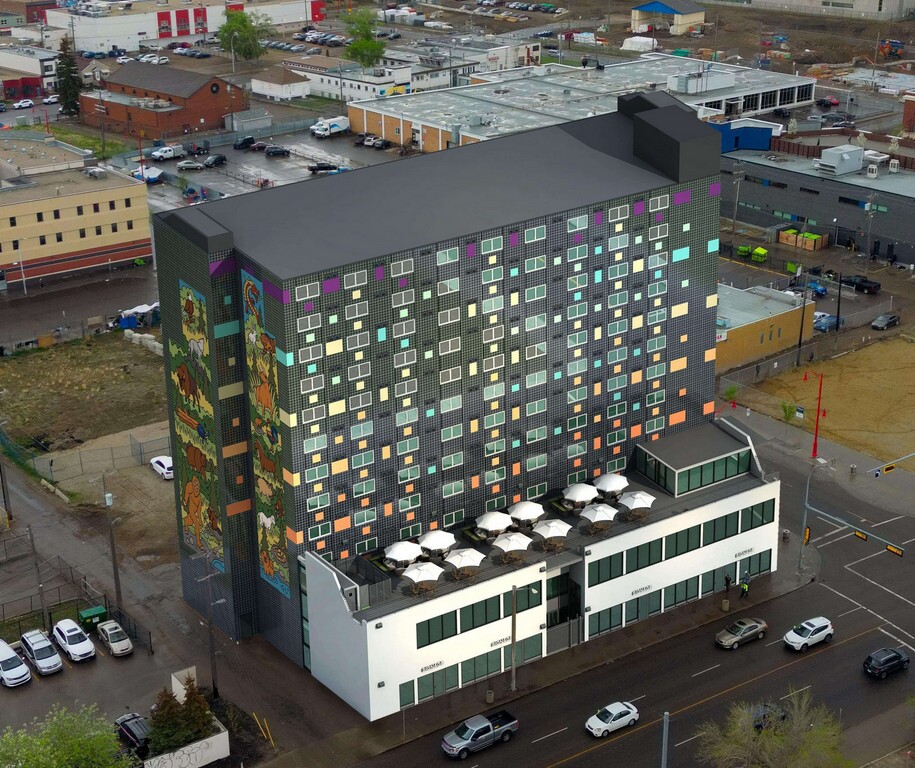
Guinness World Records Recognizes Mark Set By Canadian Solar Panel Facade Maker
Daniel Hadizadeh wants building owners to get a charge out of their properties by adding solar panels as a method of harnessing sunlight to be converted into power.
Hadizadeh founded Mitrex Solar a decade ago to manufacture and install solar cladding panels on facades. Now, approximately 20 structures in Canada, the United States and the Middle East have been outfitted with the preassembled cladding.
“The sun shines every day, and not being able to harness it started bugging me. So about 10 years ago I started doing research and development, and five years ago we started manufacturing,” he said in an interview. Adding the panels to new properties increases building costs by roughly 5% to 10%, but in turn, they can help a property owner save up to 30% in energy costs, Hadizadeh added.
Mitrex set a mark recognized by Guinness World Records last month for its installation of the world’s largest solar panel mural on The SunRise apartment complex in downtown Edmonton. The firm said its solar cladding also adorns buildings, including 18 Queen St. in Kingston, Ontario,1451 Wellington in Ottawa, and 1154 Wilson and 587 Avonhead Road in Toronto. The panels have also recently been added to the Taza Marketing Centre, part of the major Taza real estate development west of Calgary.
Guinness, a company that says it’s the “global authority on all things record-breaking,” is widely recognized as a source to track and verify such achievements.
Mitrex’s customers include hospitals, airports and real estate investment trusts, Hadizadeh said.
As with most real estate development, location plays a major role in the business, as not all areas of Canada receive the same amount of sunshine as places such as Iran, where Hadizadeh was born before moving to Canada as a child.
Calgary leads all Canadian cities with 333 sunny days per year, according to weatherstats.ca, while Winnipeg comes in second among large cities with 318 days per year. Montreal, Toronto and Ottawa all get 303 sunny days while Quebec City gets 291 days of sunshine, Vancouver 288 and St. John’s in Newfoundland and Labrador 270, according to weatherstats.ca.
Mitrex said it has, as a result, seen good results in Alberta and Winnipeg, as well as in Halifax and across Ontario. Customers typically include hospitals, airports and larger residential investors.
Hadizadeh said Mitrex Solar has a patent on the installation process and keeps production costs down by creating the panels at its warehouse in Toronto.
Source CoStar. Click here for the full story.
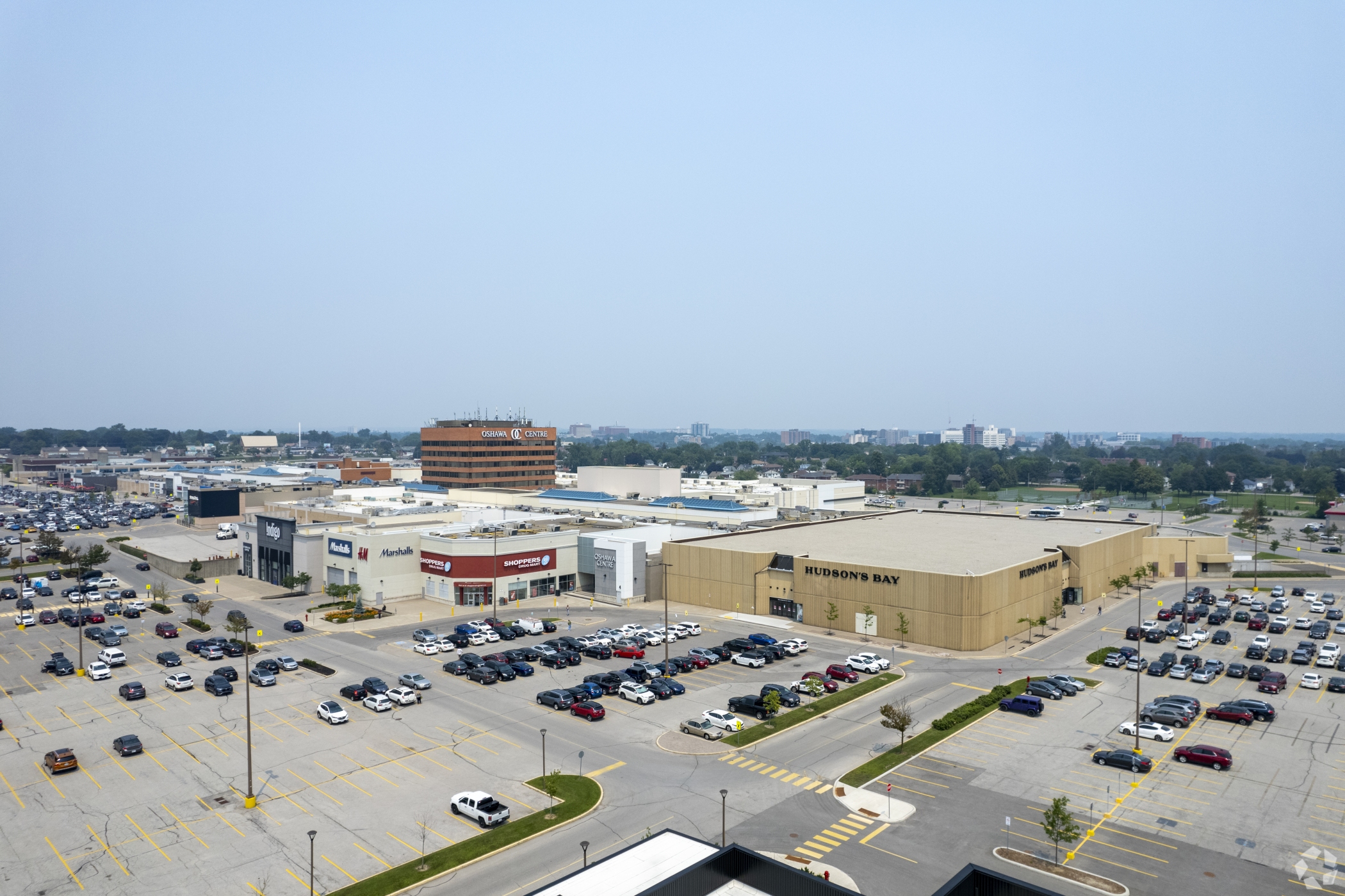
Toronto’s Top Buyers Drive Market Momentum In 2025
Toronto’s commercial real estate investment sales market has softened in 2025 compared to recent years.
However, this lower-sales trend is not uniform across all asset classes. The decline has been driven by a significant pullback in office transactions, which continue to face demand challenges from hybrid work and elevated vacancy rates.
In contrast, sales of retail properties have held up surprisingly well when considering the recessionary risks on the horizon and relatively tight capital markets. Furthermore, sales of industrial and multifamily properties, though down from the highs of their recent bull runs, remain consistent with pre-pandemic levels.
So far in the first half of this year, three buyers have emerged as the most active players in the Toronto market: Primaris REIT, Crestpoint Real Estate Investments Ltd. and Dream Industrial REIT. Together, they have invested more than $1 billion across 25 properties since the beginning of January.
Primaris REIT leads with $375 million in acquisitions attributed to a single portfolio deal that comprised seven properties. The vast majority of the transaction value, 95%, was allocated to retail, with the remaining 5% allocated to office. Additionally, Primaris REIT recently acquired Limeridge Mall in Hamilton, which falls outside of the GTA.
This retail mall sold for $416 million, further underscoring the REIT’s ambitious investment activity in the retail space, notwithstanding some negative sentiment associated with the recent closure of the Hudson’s Bay Co.
Crestpoint Real Estate Investments Ltd. follows with $373 million invested involving two transactions and seven properties. Crestpoint’s total spending so far this year has focused on industrial real estate. Its top deal was the acquisition of 7900 Airport Road in Brampton from Unilever for $253 million. Additionally, the firm purchased a six-property portfolio in Mississauga from Desjardins Insurance for $120 million.
Dream Industrial REIT rounds out the top three buyers of GTA commercial property with $316.7 million involving 13 properties in two transactions. A total of 5% of Dream Industrial REIT’s spending was allocated to land, with the remaining 95% to existing industrial buildings.
Its most notable purchase was of an 11-property portfolio in Eastern GTA from Pure Industrial for $257.5 million. The REIT’s other transaction consisted of two properties in Oakville, which were purchased from Crestpoint Real Estate Investments Ltd.
With the top three buyers responsible for 20% of year-to-date activity, compared to a five-year average of just 7.4%, the data points to a market where a small group of well-capitalized players are driving momentum amid broader investor hesitation.
Source CoStar. Click here for the full story.


